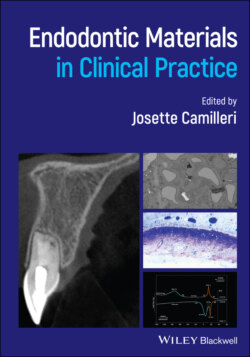Читать книгу Endodontic Materials in Clinical Practice - Группа авторов - Страница 46
2.5.3 Setting Time and Handling
ОглавлениеProRoot MTA is limited clinically by a prolonged setting time [232, 233], which lasts several hours. As a result, the manufacturer claims the material should be applied over two visits – a feature which is not ideal for vital pulp applications. Newer HCSCs, including MTA Angelus, Biodentine, and resin‐modified calcium silicates such as TheraCal LC, advertise significantly shorter or instant setting times, facilitating completion of treatment in one visit. Notably, the setting time of Biodentine is not always predictable, with it often taking significantly longer than the advertised time even for initial setting to occur [145, 230]; however, it is still much quicker than ProRoot MTA. It has been reported that MTA Angelus and Biodentine have similar setting times [234]. Light‐cured HCSCs, whilst offering an instantly setting material, have been shown to be cytotoxic and are not recommended for use as direct pulp‐capping materials [187]. Traditionally, MTA has been reported to be difficult to handle because of its consistency and formulation [232, 235], whilst Biodentine is considered easier to mix and use [234]. A recent questionnaire‐based study investigated Biodentine and MTA in VPT and highlighted that many dentists avoided using any calcium silicate materials, citing reasons of cost, lack of training, and difficulties in material handling [236].
